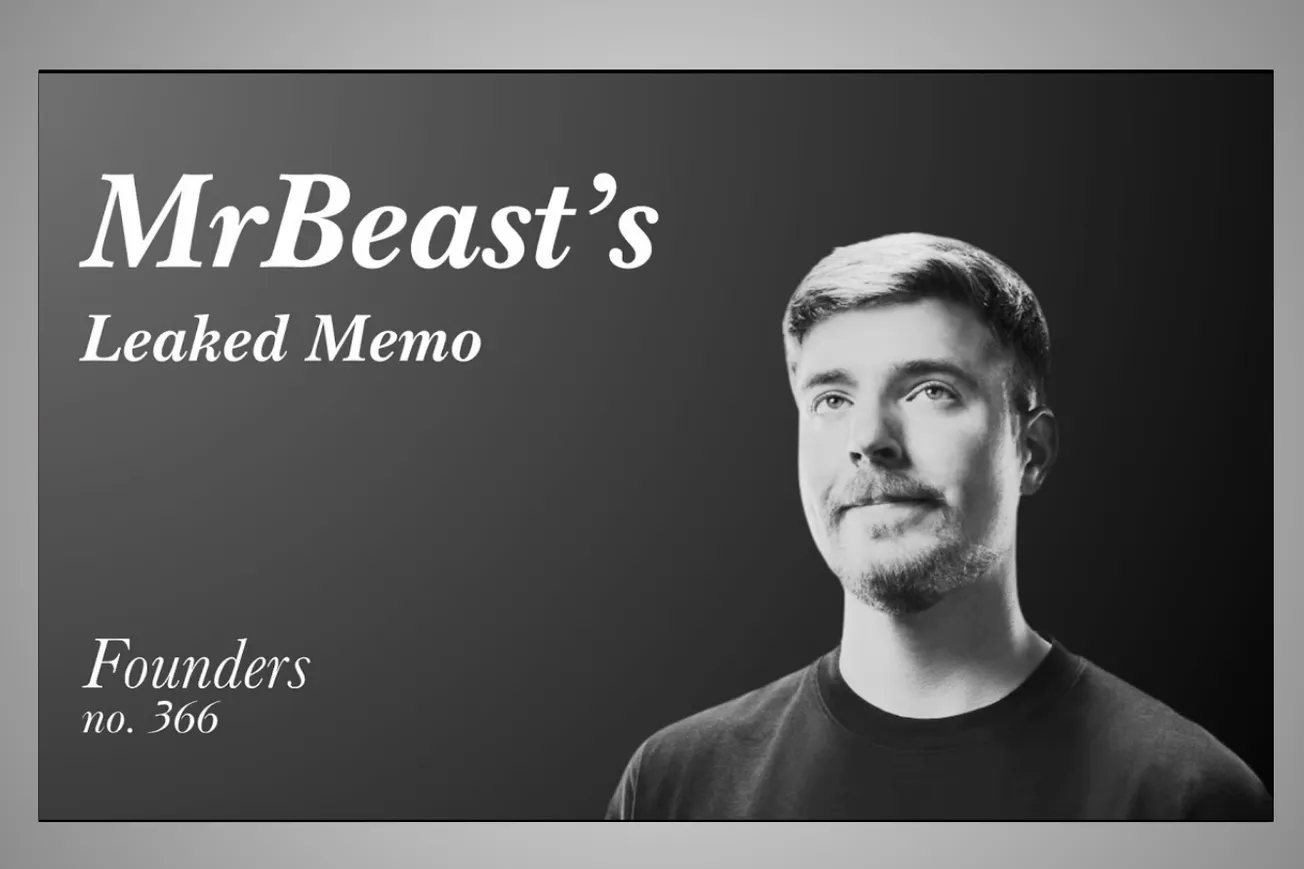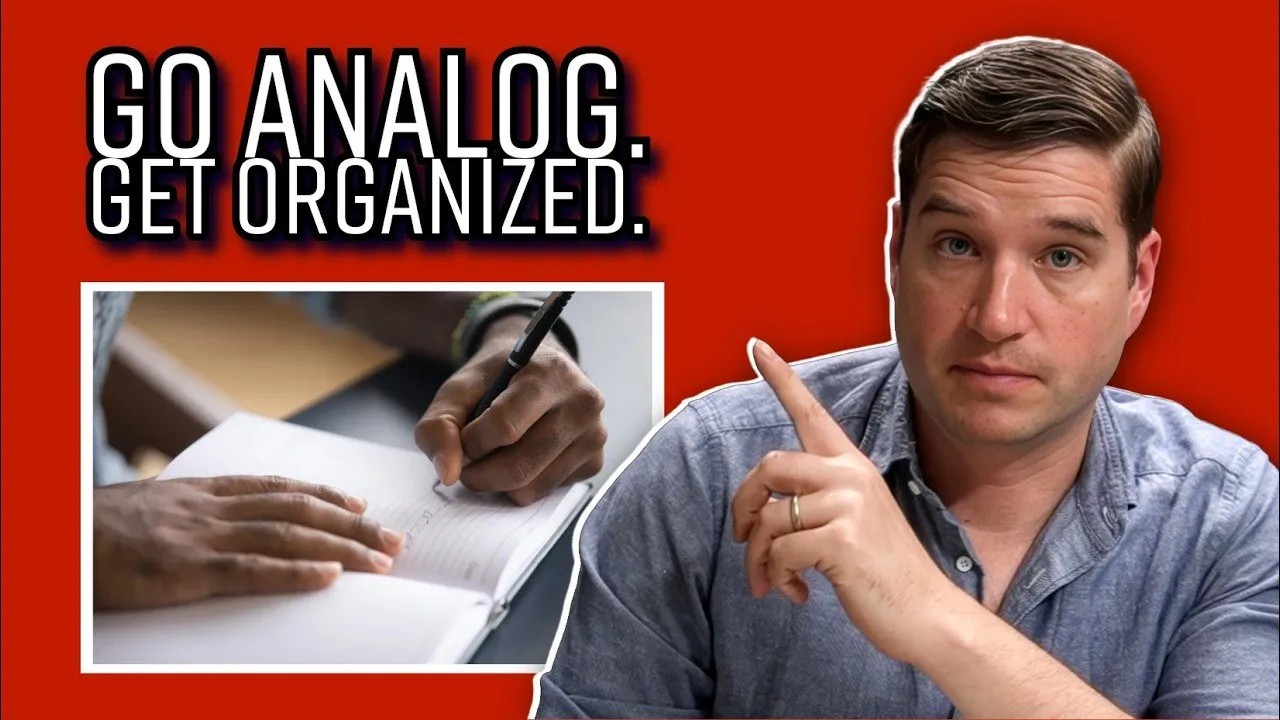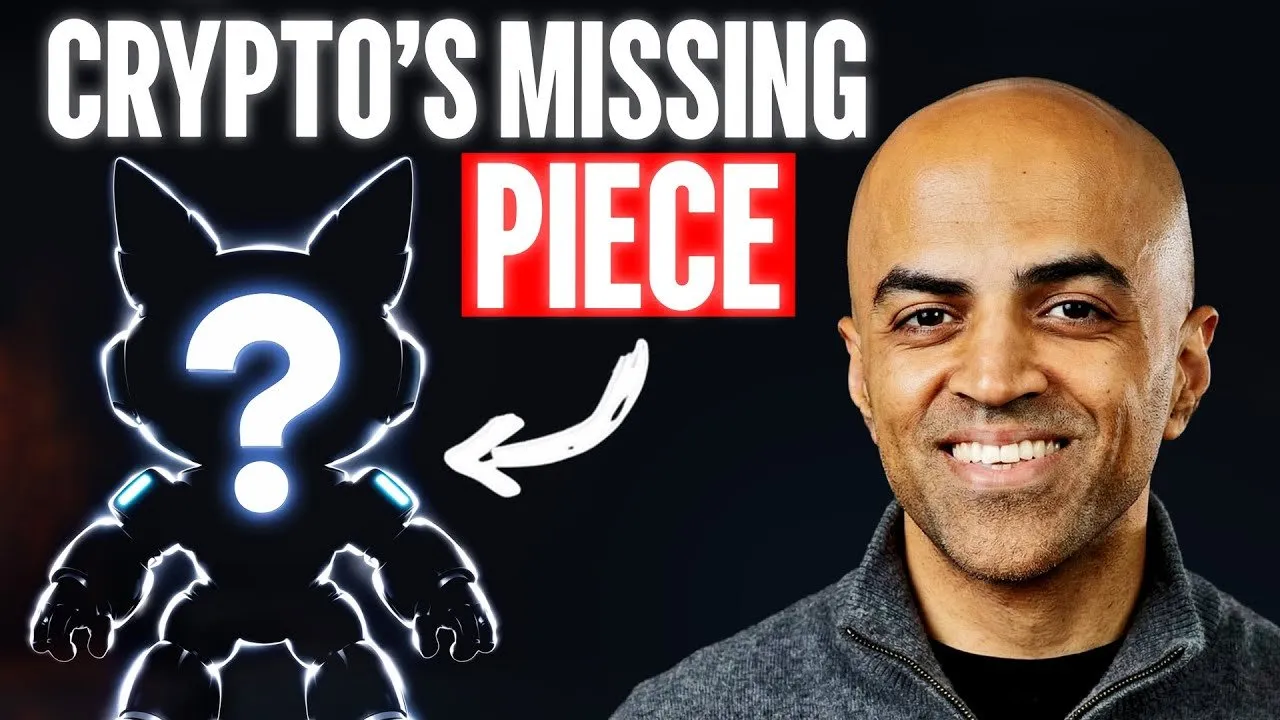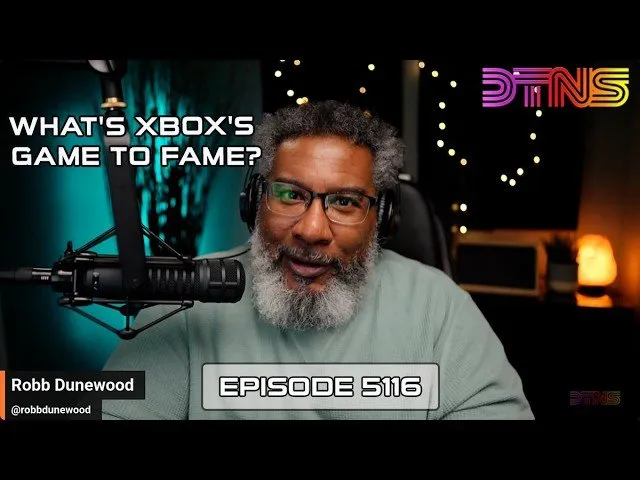Table of Contents
Inside look at Jimmy Donaldson's internal company memo revealing the principles that built YouTube's largest channel and most valuable creator economy business.
Key Takeaways
- The singular company goal: "Make the best YouTube videos possible" - everything else flows from this obsessive focus
- Only hire A-players who are obsessive, coachable, intelligent, and don't make excuses - B-players need training, C-players are "poisonous"
- Deep platform knowledge is essential - employees must watch vast amounts of YouTube content and every Mr Beast video
- Extreme ownership and accountability - "God himself couldn't stop you from making this video on time"
- Higher forms of communication for complex issues - face-to-face beats calls, calls beat texts, texts beat emails
- Embrace mistakes as learning opportunities but demand people learn and not repeat errors
- Always use consultants when possible - "Consultants are literally cheat codes" for any challenging task
- Never accept "no" at face value - exhaust all conceivable options before giving up on any request
- Obsess over every detail - 90 seconds longer average view time can triple video performance at scale
- Pay exceptionally well for top talent - "I deeply believe in rewarding the people that help this business get to where it needs to be"
Timeline Overview
- 00:00–15:30 — Company Foundation and Mission: Jimmy's opening explanation that the team has "been through a lot" with decades of experience, establishing "make the best YouTube videos possible" as the singular goal, rejecting Hollywood methods in favor of YouTube-native approaches
- 15:31–28:45 — A-Player Culture and Hiring Standards: Defining A-players as obsessive learners who believe in YouTube, B-players as trainable newcomers, C-players as "poisonous" average employees, emphasis on results over hours worked, James Warren example solving problems in 30 minutes that teams can't solve in a week
- 28:46–42:20 — Deep Platform Knowledge Requirements: Demanding employees become obsessed with YouTube, watch all Mr Beast content, study retention metrics and optimization, parallels to great filmmakers knowing film history, Bill Gates knowing every software company in his industry
- 42:21–55:15 — Operational Excellence and Accountability: Identifying bottlenecks and taking ownership, daily check-ins on critical tasks, "less excuses in this company" mentality, treating failures as personal responsibility rather than external circumstances
- 55:16–01:08:30 — Communication Standards and Feedback: Higher forms of communication for complex issues, "say the negatives" rather than just positives, welcoming bad news promptly, being honest rather than nice, written communication requiring confirmation of receipt
- 01:08:31–01:21:45 — Learning Culture and Mistake Management: Mistakes are expected and valuable learning opportunities, veterans have "cost me a million dollars at one point," zero tolerance for people who don't learn from errors, investing in people's development through failures
- 01:21:46–01:35:00 — Resource Utilization and Consultant Strategy: "Consultants are literally cheat codes" for any task, always check for expert help before starting, example of calling previous world record holder for cake-making advice, Jimmy's decade of YouTube obsession as consultant value
- 01:35:01–01:48:15 — High Agency and Persistence: "Never take no at face value," exhaust all options before accepting rejection, find fans within organizations, talk to multiple levels of management, James Cameron creating his own film school example
- 01:48:16–02:01:30 — Detail Obsession and Continuous Improvement: Every element must constantly improve - camera angles, pacing, story, lighting, music, props, people, framing, ideas, 90-second retention difference creating 80 million additional views at scale
- 02:01:31–02:15:00 — Career Development and Compensation Philosophy: "Best company in America" for ambitious people, doesn't care to "hoard money," believes in rewarding contributors, infinite room for growth, vision of tens of billions in company value, overpaying for top talent
Company Mission: The Singular Focus That Drives Everything
- Mr Beast's foundational principle echoes the clarity found in history's greatest entrepreneurs: one overriding mission that guides every decision. "Your goal here is to make the best YouTube videos possible. That's the number one goal of this production company. It's not to make the best produced videos, not to make the funniest videos, not to make the best looking videos, not the highest quality videos. It's to make the best YouTube videos possible."
- This laser focus mirrors Bob Kiernan's philosophy from "The Goal," where he emphasized that every organization must have a shared common goal that gets repeated constantly. As Jimmy notes, "After 6 months in the weeds, a lot of people tend to forget what we are actually trying to achieve here." The leader's job is continuously realigning everyone with this core mission.
- The mission's specificity matters enormously. Jimmy deliberately rejects Hollywood approaches: "This is not Hollywood and I do not want it to be Hollywood. If that sentence is a turnoff to you, then you're probably at the wrong job. YouTube is the future and I believe with every fiber of my body it's going to keep growing." This conviction shapes every operational decision.
- Like Steve Jobs's "insanely great products" rallying cry, Jimmy's mission provides both clarity and inspiration. The memo explains that "everything we want will come if we strive for that" - revenue, growth, recognition, and impact all flow from obsessive focus on making the best possible YouTube content rather than chasing multiple objectives simultaneously.
- The mission's power lies in its ability to simplify complex decisions. When faced with competing priorities or trade-offs, the question becomes simple: "Does this help us make the best YouTube videos possible?" This framework eliminates confusion and enables rapid decision-making across a large organization.
- Jimmy's confidence in this approach stems from deep understanding of his chosen battlefield. His assertion that "99% of movies or TV shows would flop on YouTube" reflects years of studying platform dynamics. By committing completely to YouTube-native content creation, he avoids the trap of fighting yesterday's war with today's weapons.
A-Player Culture: The Relentless Pursuit of Excellence
- Mr Beast's hiring philosophy reflects an understanding that in creative and high-leverage work, the performance gap between excellent and average people is exponential rather than linear. "I only want A-players. You're either an A-player, B-player, or C-player. There's only room in this company for A-players." This echoes Steve Jobs's insight that in many fields, the best person isn't twice as good as average - they're 50 to 100 times better.
- The definition of A-players goes beyond technical skills to character traits that enable continuous growth: "A-players are obsessive, they learn from mistakes, they're coachable, intelligent, they don't make excuses, they believe in YouTube, they see the value of this company, and they're the best in the goddamn world at their job." This combination of competence, character, and cultural fit creates teams that can tackle unprecedented challenges.
- The James Warren example illustrates the compound returns of hiring exceptional people: "He understands every single part of this company at a deep level and as a result can make decisions faster than anyone else. I've seen a team of five people work on a project for a week just to give up, and James solve it in 30 minutes." This mirrors Jay Pritzker's ability to identify the critical bottleneck in complex deals instantly.
- The treatment of B-players and C-players reflects both pragmatism and urgency. "B-players are new people; they need to be trained into A-players. C-players are just average employees. They aren't exceptional, they aren't obsessive about learning. C-players are poisonous and should be transitioned to a different company immediately." This ruthless approach to talent management ensures that cultural standards remain high as the organization scales.
- The PayPal precedent validates this approach - their early team's obsession with hiring only A-players created a network that went on to found or lead Tesla, SpaceX, LinkedIn, YouTube, Yelp, and countless other companies. As Max Levchin emphasized, "A's hire A's, B's hire C's, so the first B hire takes the whole company down." The compounding effects of talent quality make hiring the highest-leverage activity for any growing organization.
- Jimmy's results-focused culture eliminates the traditional time-based evaluation common in corporate environments: "The amount of hours you work is irrelevant. You will be judged on results, not hours. We are a results-based company. Get shit done and move the goalpost." This approach attracts self-motivated people who thrive on autonomy and accountability while deterring those who prefer structure over performance.
Deep Platform Knowledge: The Foundation of Strategic Advantage
- Jimmy's demand for comprehensive YouTube knowledge reflects a pattern seen across history's most successful entrepreneurs - they become the world's leading experts in their chosen domain. "I want you to be obsessed with YouTube. Get rid of Netflix and Hulu and watch tons of YouTube. It will, without a doubt in my mind, make you more successful here." This echoes how great filmmakers study cinema history, or how Bill Gates knew every software company's revenue, leadership, and product roadmap.
- The knowledge requirements are specific and demanding: "You should also really try to watch every Mr Beast video on all the channels. I've asked multiple people this week what they thought about last week's gaming video and not a single person had seen it." This isn't casual viewing but professional study - understanding how successful content works at a granular level.
- Jimmy's own knowledge foundation illustrates the compound returns of obsessive study: "I spent basically 5 years of my life locked in a room studying virality on YouTube. Some days me and some other nerds would spend 20 hours straight studying the most minor thing. The result of those probably 20,000 to 30,000 hours of studying is I'd say I have a good grasp on what makes YouTube videos do well."
- This knowledge creates pattern recognition that appears magical to outsiders but stems from systematic study. Like Edwin Land reading every book about optics in Harvard's library, or Rockefeller knowing more about his company's history than the founders, Jimmy's expertise enables him to see opportunities and problems invisible to others.
- The recommendation to read "The Goal" connects operational knowledge to platform knowledge. Understanding bottlenecks, constraints, and systems thinking becomes crucial when creating content that must navigate YouTube's complex algorithm and audience behavior patterns. Surface-level knowledge leads to surface-level results.
- The knowledge building never stops: "The more invested you are in the world of YouTube, the more you'll understand how we can stand out and be more original, what we could be doing better, etc." This mirrors Bernard Arnault's approach of conducting thousands of store visits to understand retail dynamics that others miss. Quantity of exposure creates qualitative insights unavailable through casual observation.
Operational Excellence: Extreme Ownership and Accountability
- The memo's operational philosophy centers on eliminating excuses and taking complete ownership of outcomes. "I want less excuses in this company. Take ownership and don't give your project a chance to fail. I want you to have a mindset that God himself couldn't stop you from making this video on time." This echoes Larry Ellison's question to Israeli military leaders: "What did you bring me today - results or excuses?"
- Bottleneck identification and management becomes a core skill: "Look them in the eye and tell them that they are the bottleneck and take it a step further and explain why they are the bottleneck so you're both on the same page." This direct communication prevents the confusion and delays that plague most organizations where people don't understand their role in the critical path.
- Daily accountability replaces hope-based project management: "Every single day you must check in on Tyler and make sure he is still on track to hit the target date." This systematic approach eliminates the common failure mode where people assume others are handling important tasks without verification.
- The philosophy extends beyond individual tasks to systemic thinking: "Don't take anything at face value, always dig. If someone says something's too good to be true, find out why." This skepticism prevents problems that would otherwise emerge during critical production windows when fixes become expensive or impossible.
- Verification becomes personal responsibility: "Do not overly trust people outside the company. Verify what they say. It is your fault if they don't pull through." This approach eliminates the victim mentality that plague many organizations and ensures that team members think like owners rather than employees.
- The underlying principle mirrors successful military and business operations: "What tends to happen is people think their job is done by finding 10,000 pillows and just order them, only for us to find problems when they arrive. But then it's too close to the filming window to fix it." Excellence requires thinking several moves ahead and building buffer time for inevitable complications.
Communication Standards: Higher Forms for Higher Stakes
- Jimmy's communication hierarchy reflects deep understanding of how information fidelity affects execution quality. "The worst thing you could ever do when you need something for your critical component is email someone at the company. The best is to talk to them in real life." This prioritization prevents the miscommunication that derails complex projects.
- The reasoning demonstrates sophisticated thinking about human psychology: "As I'm typing this to you, you have no idea if I'm laughing, smiling, happy, mad, or sad. You can't read my body language or my face, and because of that, it's not guaranteed that you'll understand what I'm conveying." High-stakes situations require high-bandwidth communication.
- Escalation protocols match urgency levels: "One week out from a video and the thing you're working on just went south - minimum a multi-call with the heads of that video, ideally you grab them in real life." As complexity and time pressure increase, communication methods must become more direct and immediate.
- Confirmation requirements eliminate assumptions: "Written communication also does not constitute communication unless they confirm they read it." This simple rule prevents countless failures where critical information was sent but not received or understood.
- The "higher forms of communication" concept applies beyond just medium selection to feedback quality. "Say the negatives. Do not just tell people on your team or me why something is good. It is infinitely more valuable to tell us why it's not good." This mirrors Charlie Munger's emphasis on welcoming bad news promptly while good news can wait.
- The honesty over niceness principle creates sustainable relationships: "I'd rather you be honest with each other than nice to each other." Like Steve Jobs's feedback to Jonathan Ive about being "vain" rather than focused on the work, this approach prioritizes mission success over comfort, ultimately creating better outcomes for everyone involved.
Learning Culture: Mistakes as Investments in Human Development
- Jimmy's approach to mistakes reflects sophisticated understanding of how learning occurs in high-performance environments. "Mistakes are okay, genuinely they are, and I expect you to make a lot. That is perfectly fine. Every veteran here has cost me a million dollars at one point or another, and you can go ask them yourself if I ever held it over their heads."
- The investment mindset transforms failures into assets: "The reason I'm okay with your fuckups is because I know that's how you learn. I see it as me investing in you and your brain." This perspective enables people to take intelligent risks rather than playing it safe, leading to breakthrough innovations and rapid skill development.
- The tolerance for mistakes comes with clear expectations: "I just beg you that you learn from every mistake and try not to repeat it." This distinguishes between valuable learning experiences and careless repetition of known problems. Growth requires both risk-taking and reflection.
- The distinction between A-players and C-players becomes crucial in mistake management: "I have zero tolerance for C-players and they must go immediately. Those fuckups could be done by an A-player that will retain the information learned." Character and learning ability matter more than perfection.
- This philosophy mirrors David Ogilvy's story about the Sears toy buyer who made a $10 million mistake. When asked if they would fire him, the Sears executive replied, "Hell no, I fire people who don't make mistakes." Organizations that punish intelligent failures lose their ability to innovate and improve.
- Jeff Bezos extends this thinking to scale: "If you're not making any mistakes, you're not taking enough risk. The bigger the company gets, the more expensive the mistakes should be." The memo's approach prepares team members for increasingly complex challenges as the organization grows.
Resource Utilization: Consultants as Strategic Weapons
- The memo's emphasis on consultants represents one of its most practically valuable insights: "Consultants are literally cheat codes. Need to make the world's largest slice of cake? Start by calling the person who made the previous world's largest slice of cake. He's already done countless tests and can save you weeks worth of work."
- Jimmy's credibility on this topic stems from personal experience: "I spent almost a decade of my life hyper-obsessing over YouTube. I can show a brand new creator how to go from 100 subscribers to 10,000 in a month. On their own, it would take them years to do it." The value of compressed learning timelines becomes obvious when stated this directly.
- The systematic approach to consultant usage becomes a competitive advantage: "Always, always, always ask yourself first if you can find a consultant to help you. I will always check for consultants when I'm assigned a task." This habit prevents teams from reinventing solutions to solved problems.
- The underlying principle connects to information arbitrage - finding people who have already solved the specific problem you're facing. While others struggle with trial and error, consultant usage allows teams to start with proven solutions and iterate from there. The time and cost savings compound across multiple projects.
- This approach requires overcoming ego and "not invented here" syndrome. Many teams prefer to solve problems themselves rather than acknowledge that others have superior knowledge. Jimmy's directive makes consultant usage a requirement rather than an option, removing this psychological barrier.
- The consultant mindset extends beyond formal relationships to learning from anyone with relevant experience. The memo's emphasis on studying successful YouTube creators, reading relevant books, and seeking expert advice in every domain reflects a broader philosophy of intellectual humility and rapid learning.
High Agency: Never Accepting No as Final
- The memo's approach to rejection demonstrates what high-agency thinking looks like in practice: "When dealing with people outside Mr Beast Productions, never take no at face value. Talk to other employees and see if any of the other employees are fans or if they have kids that are fans of the channel. Try talking to their boss, talk to their boss's boss, have me DM them on Twitter and try their social team."
- This persistence philosophy requires exhausting all conceivable options: "If after all avenues are exhausted and you're left with a no, that doesn't mean don't try the other Dollar Trees because the manager of those could be huge fans and willing to bend the rules. This is what we call pushing through no. Do not just stop because one person told you no. Stop when all conceivable options are exhausted."
- The James Cameron example illustrates how high-agency people create their own opportunities: "He couldn't get into USC film school, so he went to the library at USC and started photocopying all the graduate student theses on very esoteric filmmaking subjects. For the cost of a couple hundred in photocopying, he essentially put himself through a graduate course in visual effects at the top film school in the country."
- High agency requires reframing obstacles as puzzles to solve rather than barriers to accept. The memo's approach assumes that most "impossible" requests simply require more creative problem-solving or finding the right person with decision-making authority.
- This mindset becomes especially valuable in creative industries where unique access, partnerships, or permissions can dramatically improve content quality. The willingness to explore multiple paths often uncovers opportunities that competitors miss because they accept initial rejections.
- The systematic approach prevents the random walk problem where people try a few obvious solutions then give up. By methodically working through decision-maker hierarchies, fan relationships, and alternative channels, teams increase their success rate on difficult requests from occasional to predictable.
Detail Obsession: How Small Differences Create Massive Results
- Jimmy's emphasis on every single second of content reflects understanding of how small improvements compound at scale. His example of two similar videos - one watched 90 seconds longer on average - demonstrates the massive leverage available through detail optimization: "People on average watch this video a minute and 38 seconds longer than the other video of the same length. OF COURSE IT GOT TRIPLE THE VIEWS. It's clear as day for YouTube that people like this video much more."
- This 90-second difference between 11-minute videos (roughly 14% improvement in retention) resulted in 120 million views versus 45 million views - a 167% increase in performance. At Mr Beast's scale, these seemingly minor optimizations translate to tens of millions of additional views and proportional revenue increases.
- The obsession with continuous improvement spans every element: "We must always be improving and innovating. The camera angles need to always get better, the pacing, the story, the jokes, the color, the lighting, the music, the props, the people, our framing, our ideas. Literally everything must always be improving and innovating."
- This approach mirrors Walt Disney's philosophy that "if we lose the details, we lose everything." Great companies understand that attention to detail creates competitive advantages when they're small, and those same details have exponentially larger impact as the organization scales.
- The systematic study of what works separates professional content creation from amateur approaches: "Quantity has a quality all of its own. A lot of very valuable knowledge comes while watching vast amounts of our videos." Like Bernard Arnault's thousands of store visits or Bill Gates's comprehensive industry knowledge, systematic observation reveals patterns invisible to casual viewers.
- The knowledge requirements for optimization become demanding but essential: "To get 60% up to speed, I'd watch our last 50 videos. If you're a monster and really want to understand the history of the company and the innovations we've been through, I'd recommend you watch every video back until you hit the 10 million subscribers special."
Career Development: Creating Billion-Dollar Value Through People
- Jimmy's compensation philosophy reflects understanding that exceptional talent generates exponential returns: "I really don't care to hoard a bunch of money and I deeply believe in rewarding the people that help this business get to where it needs to be." This approach attracts the caliber of people capable of building billion-dollar enterprises.
- The career development process emphasizes direct feedback and clear expectations: "If you want to become a production manager, tell James your intention and ask him why you suck and how you can become better. Seriously, he will give you a list of things that you need to improve on to become what we need, and if you actually listen and master those things, we will give you a shot at the role."
- This approach eliminates the bureaucratic promotion processes that plague traditional companies. Instead of annual reviews and political maneuvering, advancement depends on demonstrating specific capabilities required for higher responsibility levels.
- The vision for company value reflects ambitious thinking about what's possible: "I see a world where this company is worth tens of billions of dollars, and those of you that help build this will be rewarded." This long-term perspective attracts people willing to sacrifice short-term comfort for potentially life-changing equity returns.
- The expectation of total commitment comes with corresponding rewards: "I want nothing more than for you to go all in, be obsessive all day every day, and become so goddamn valuable this company can't operate without you. And in return for becoming so valuable, I hope to give you an incredible experience, a fun place to work, and of course more money than you could ever dream of making at any other company."
- The memo's final instruction emphasizes the importance of repetition and deep understanding: "Now read this all over again because I guarantee you you didn't retain enough." This mirrors Les Schwab's philosophy that "whatever you do, you must do it with gusto, you must do it in volume. It is a case of repeat, repeat, repeat."
Conclusion
Mr Beast's leaked memo reveals how the world's largest content creator applies timeless business principles to modern digital media. The combination of singular focus, A-player culture, extreme ownership, and detail obsession creates a framework for building exceptional organizations in any industry.
Most importantly, the memo demonstrates that success at scale requires systematic approaches to talent, communication, learning, and execution. While the specific tactics apply to YouTube content creation, the underlying principles - obsessive focus on the mission, relentless pursuit of excellence, and creating environments where exceptional people can do their best work - represent universal truths about building valuable companies.
Practical Implications:
- Define one clear, compelling mission that guides every decision and repeat it constantly
- Hire only A-players who are obsessive, coachable, and aligned with your mission - B-players drag down the entire organization
- Become the world's leading expert in your chosen domain through systematic study and practice
- Take extreme ownership of outcomes rather than making excuses when things go wrong
- Use higher forms of communication (face-to-face, calls) for complex or critical issues
- Treat mistakes as learning investments but demand people learn from errors and avoid repetition
- Always check for consultants or experts who have solved similar problems before starting from scratch
- Never accept initial "no" responses - exhaust all conceivable options before giving up
- Obsess over every detail because small improvements compound dramatically at scale
- Pay exceptionally well for top talent and create clear paths for ambitious people to advance





